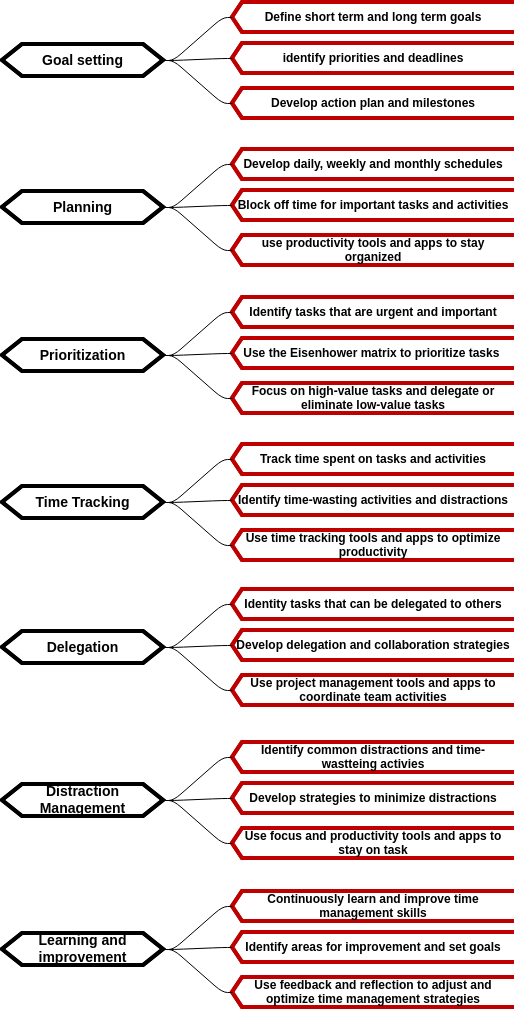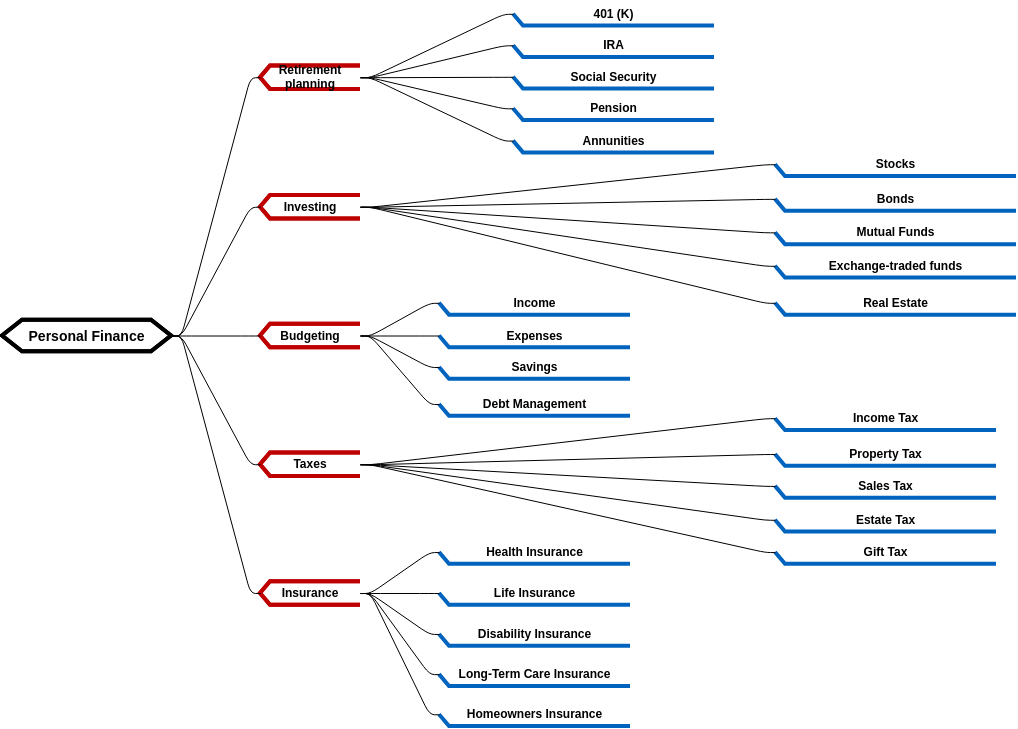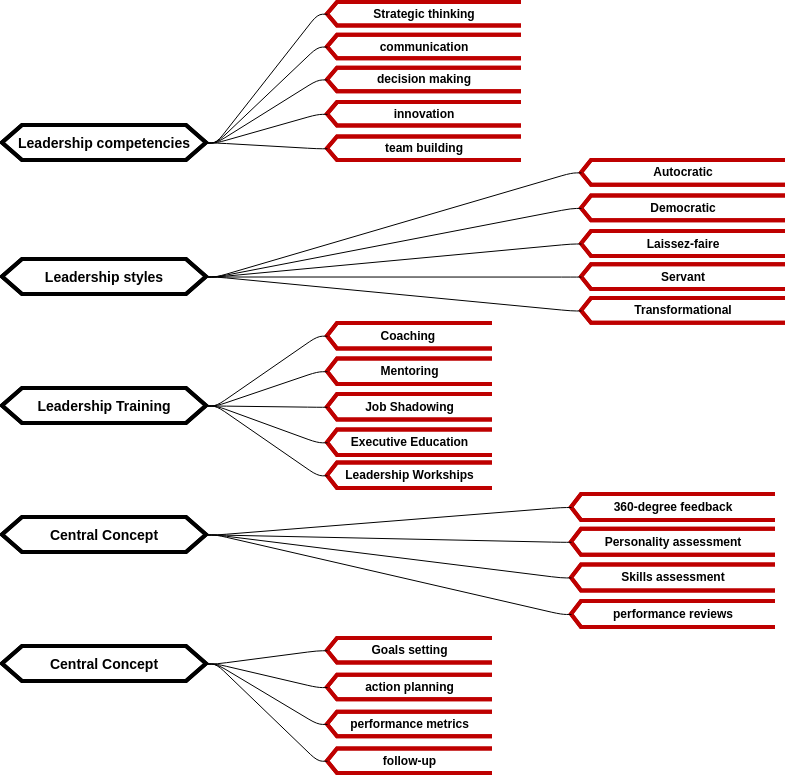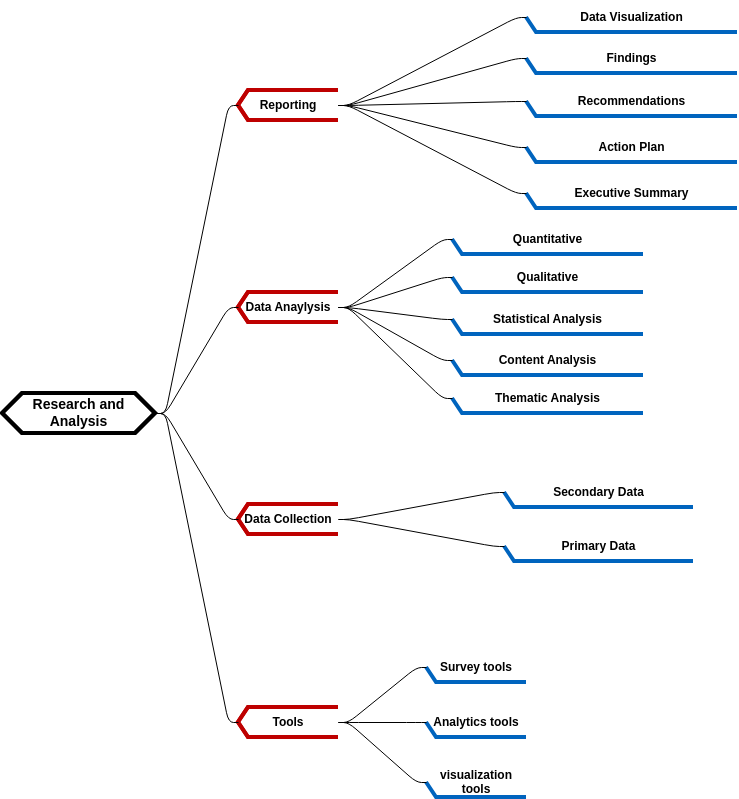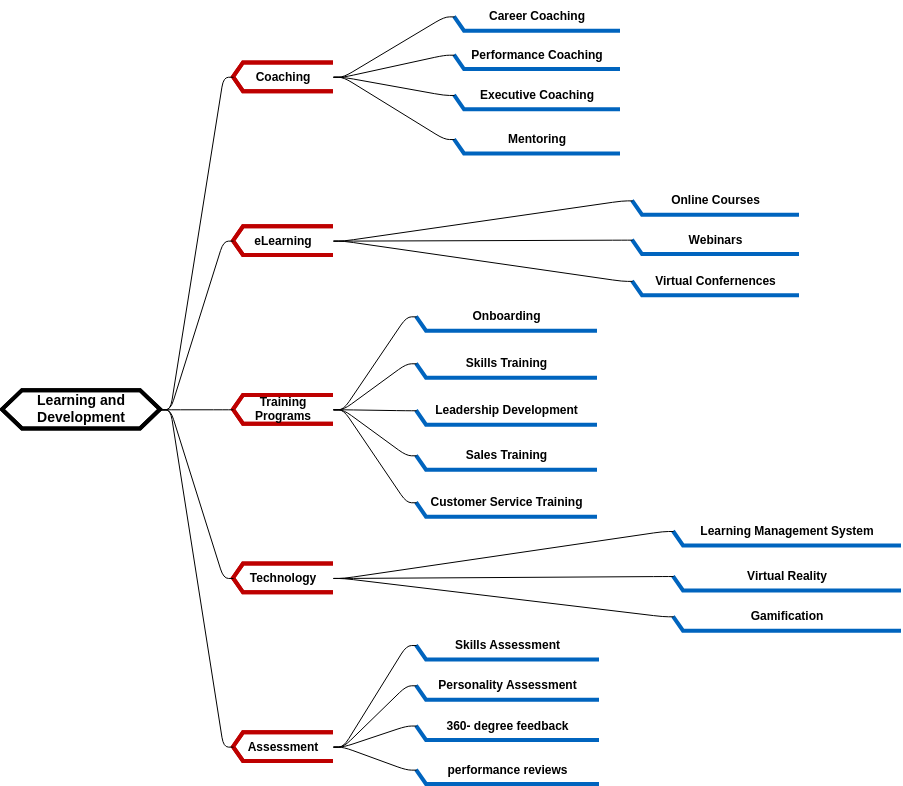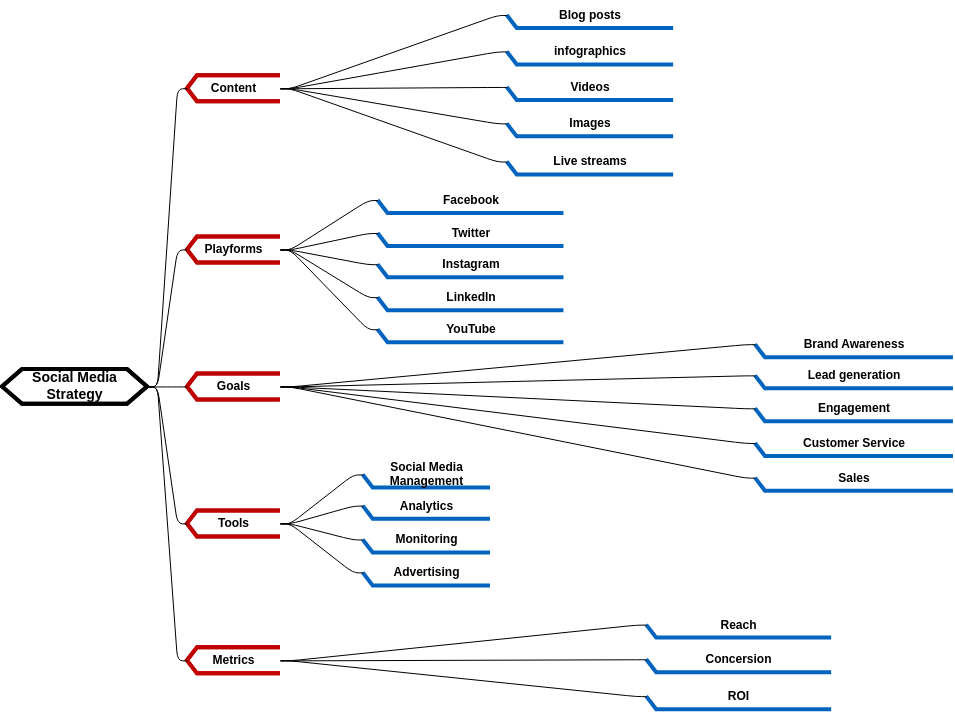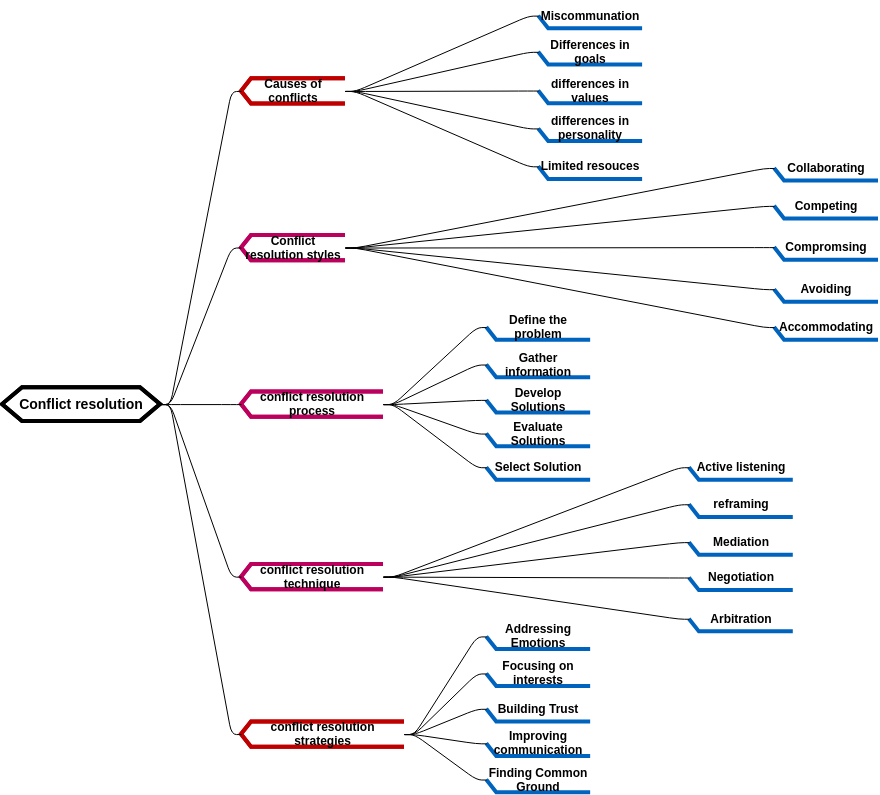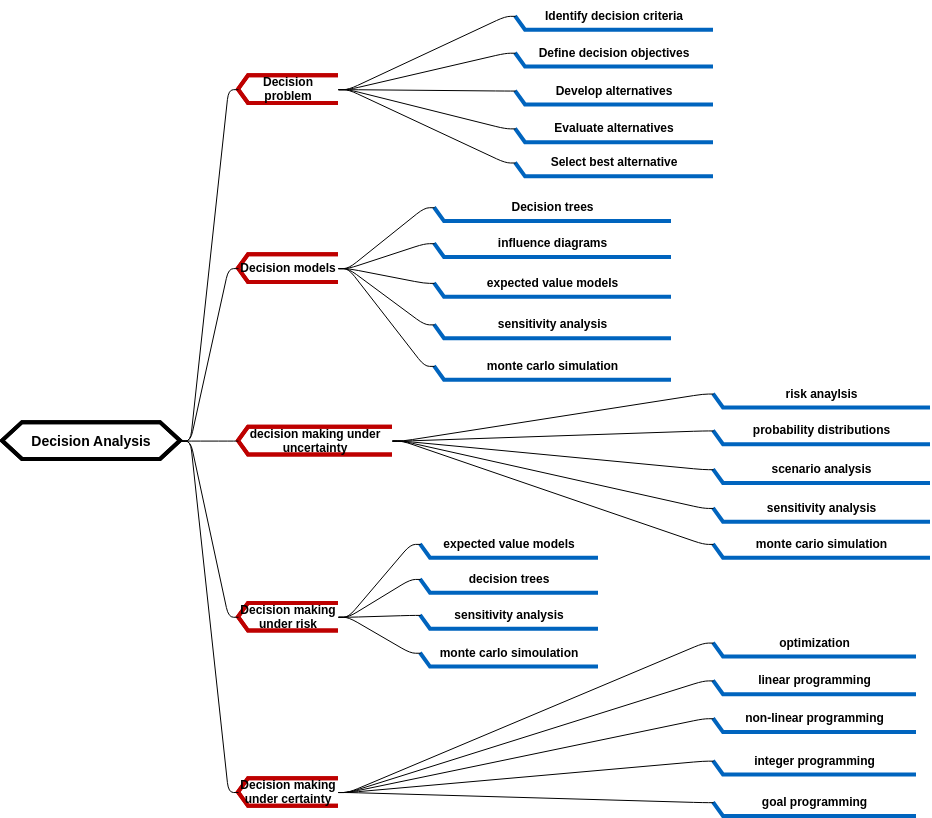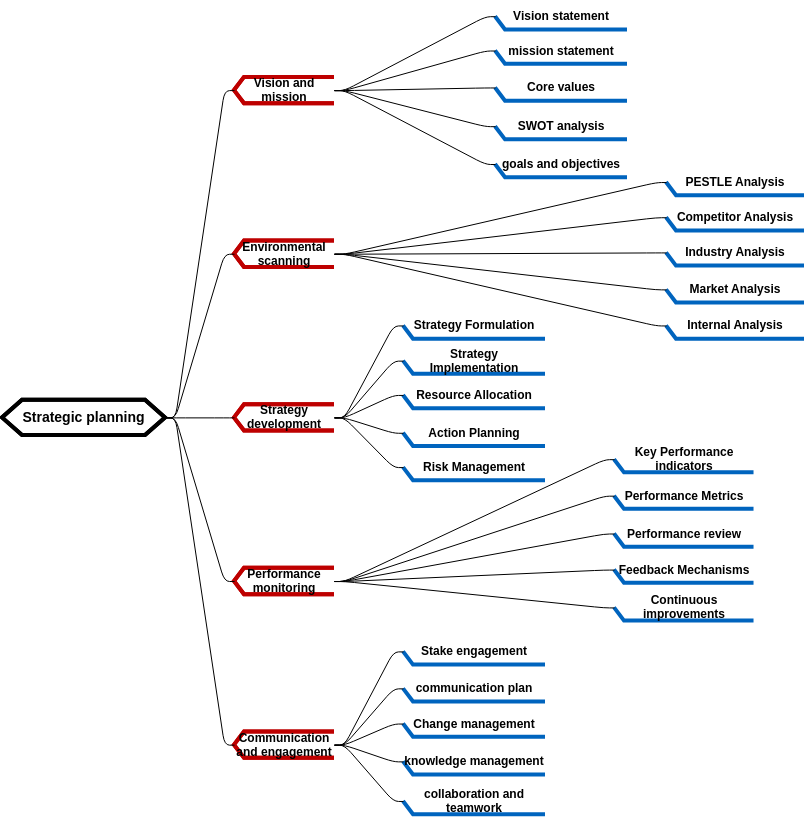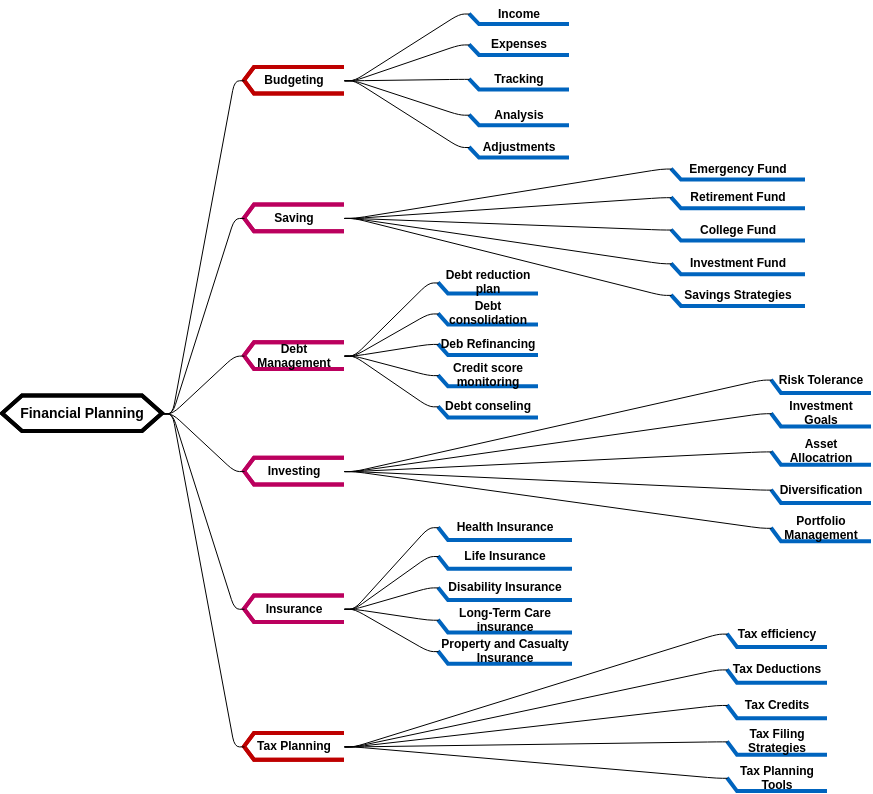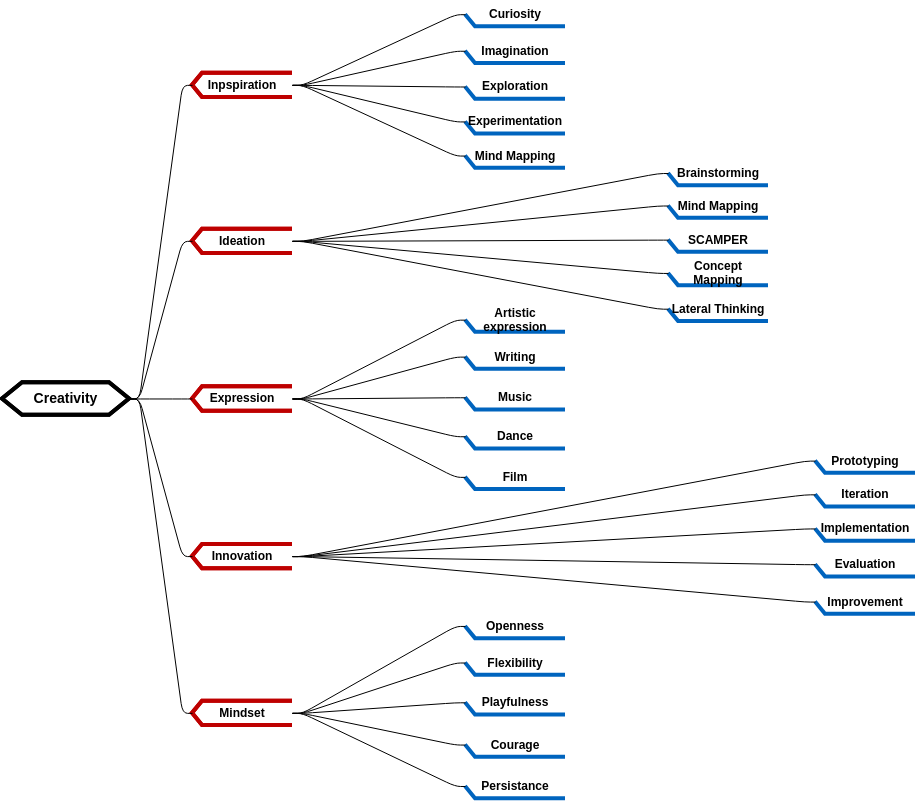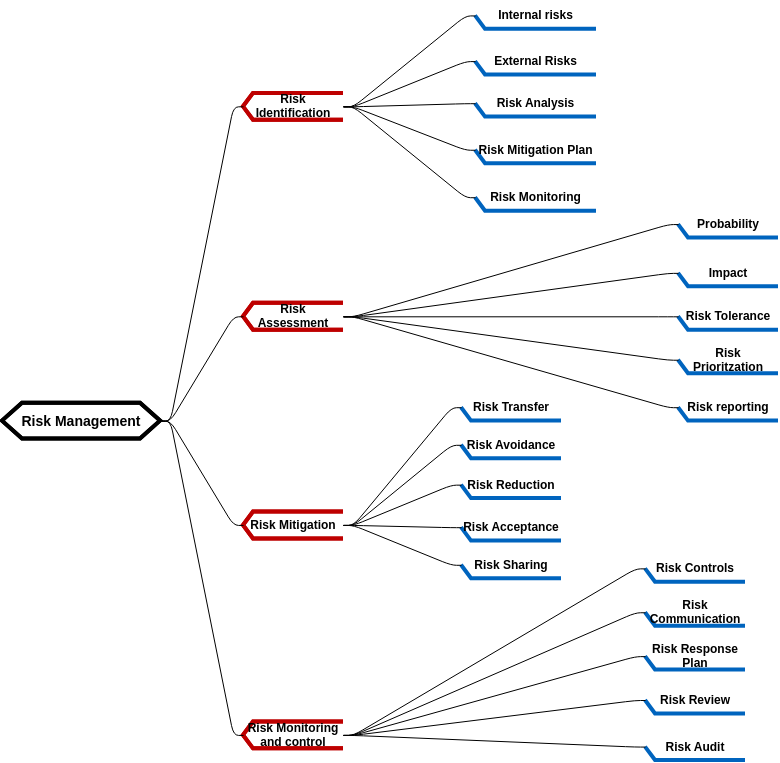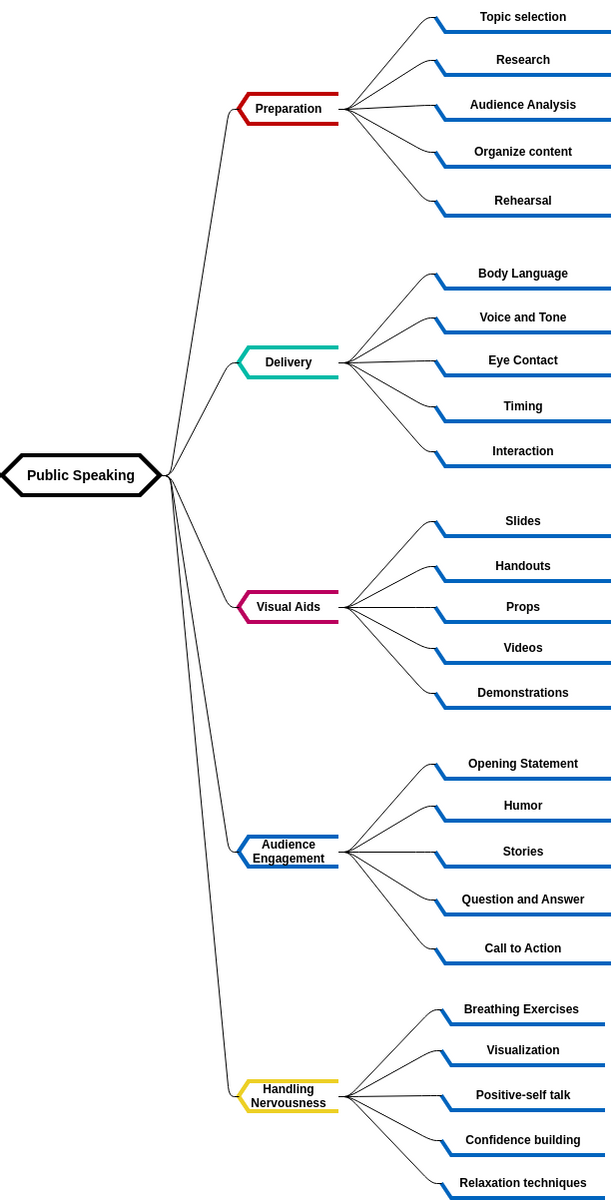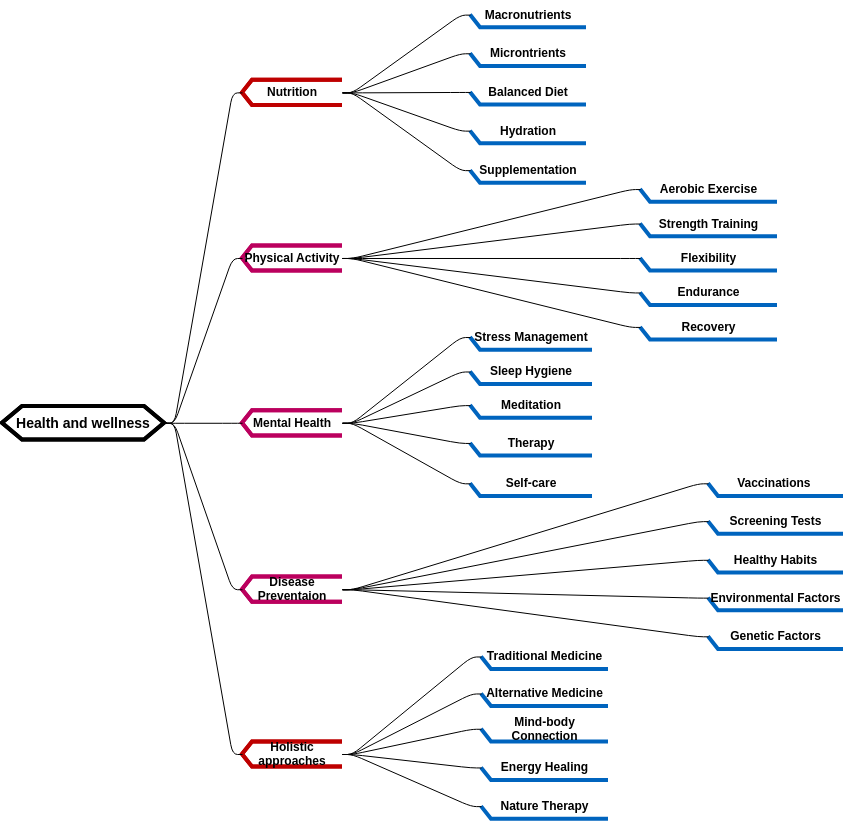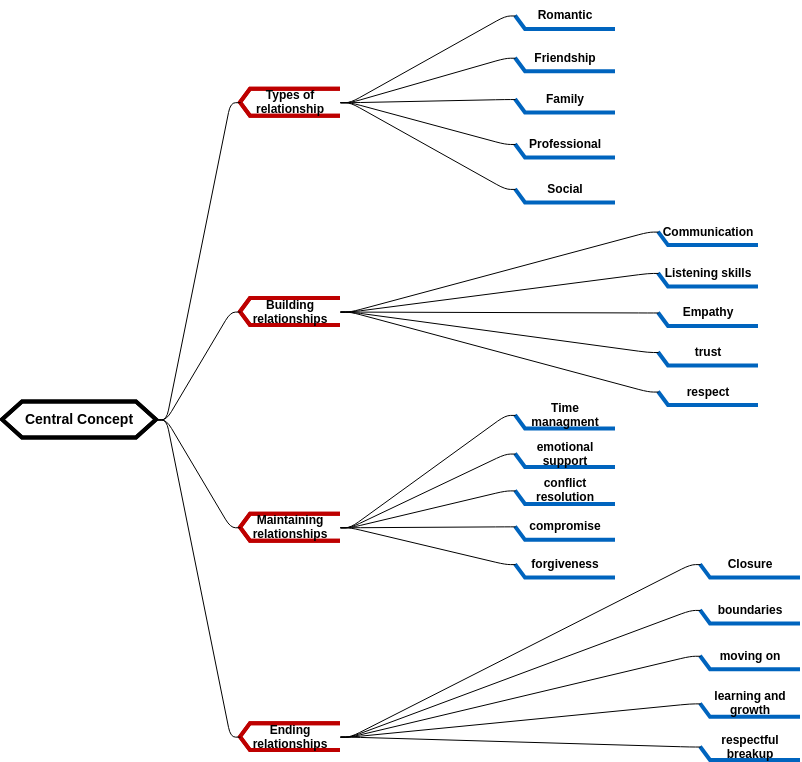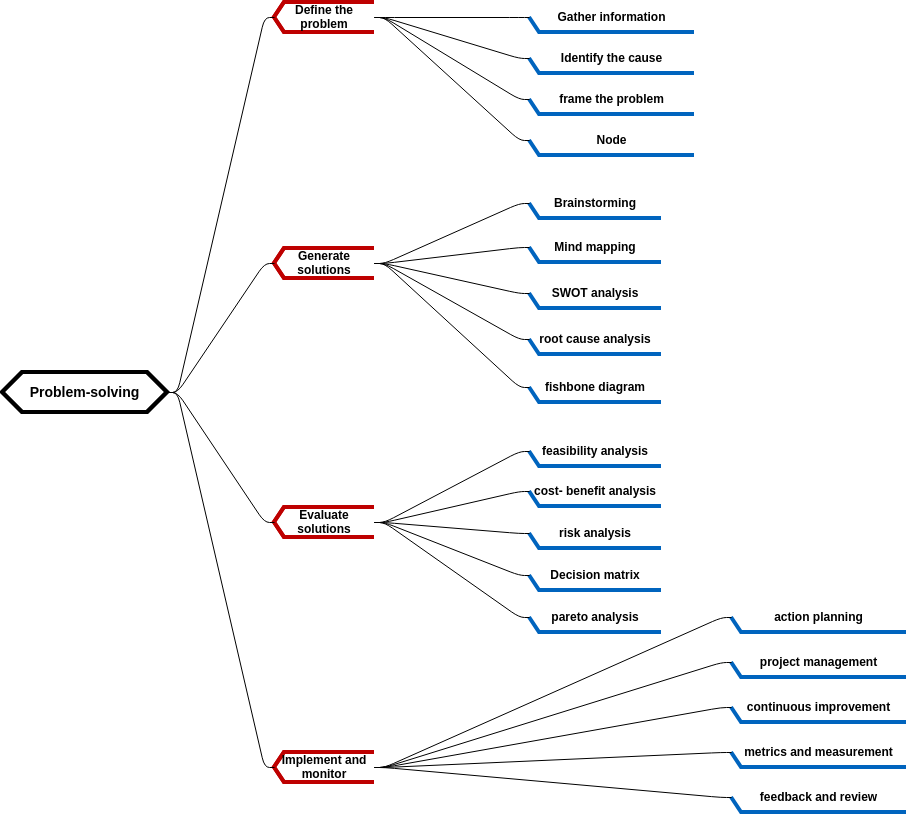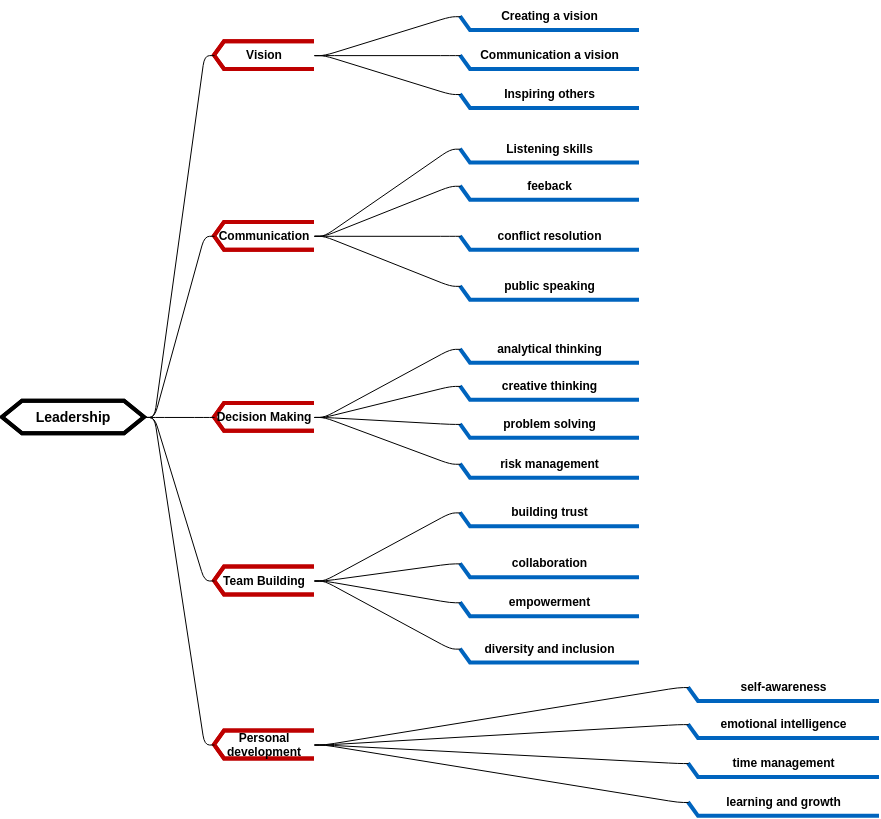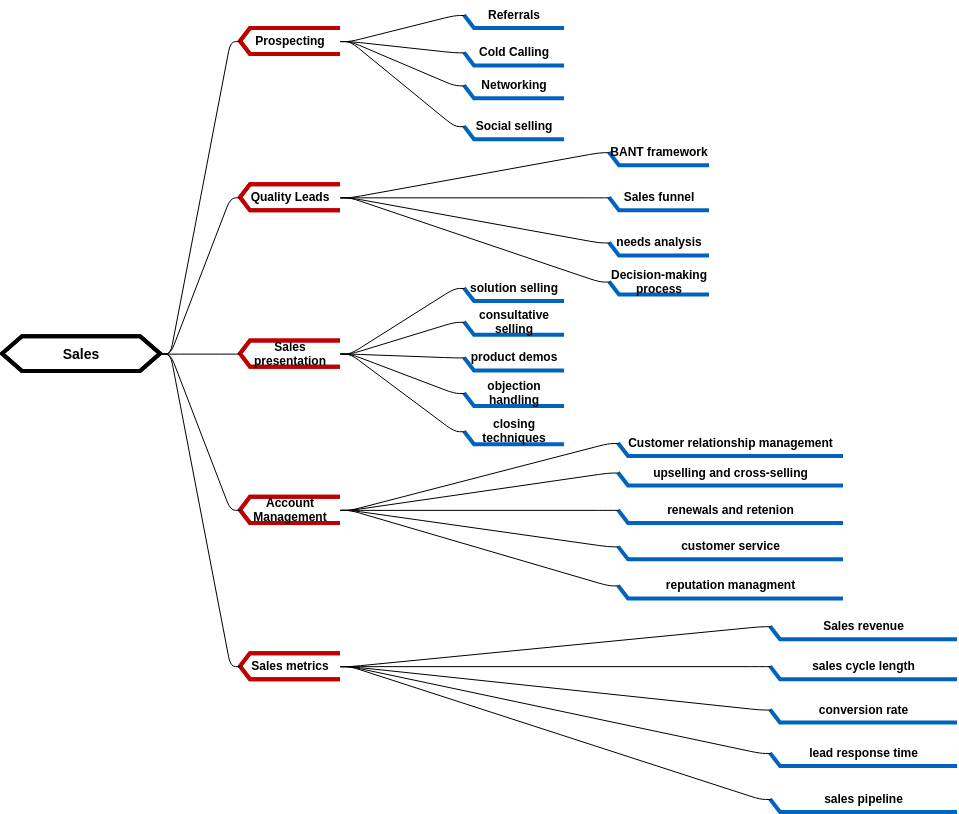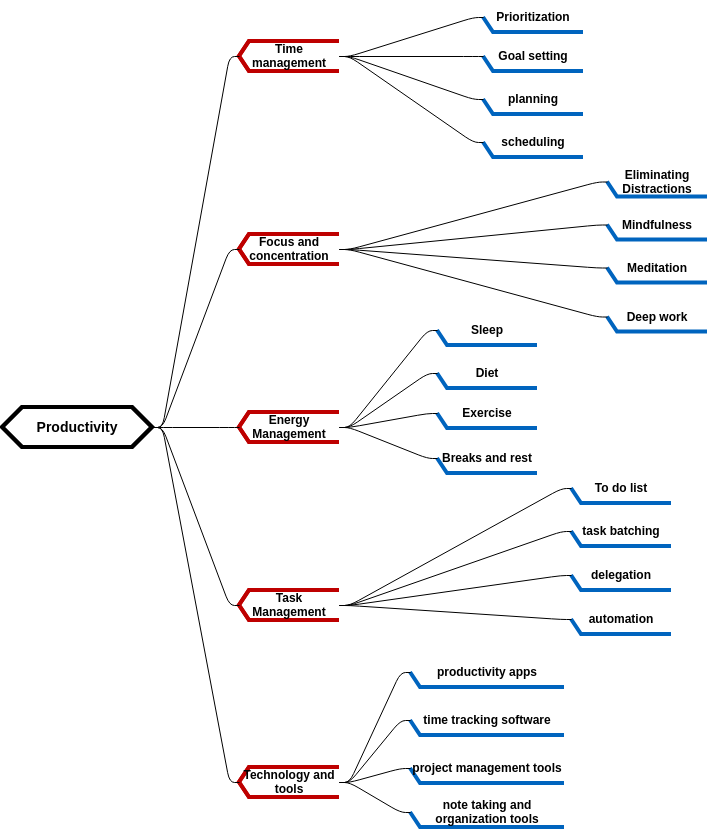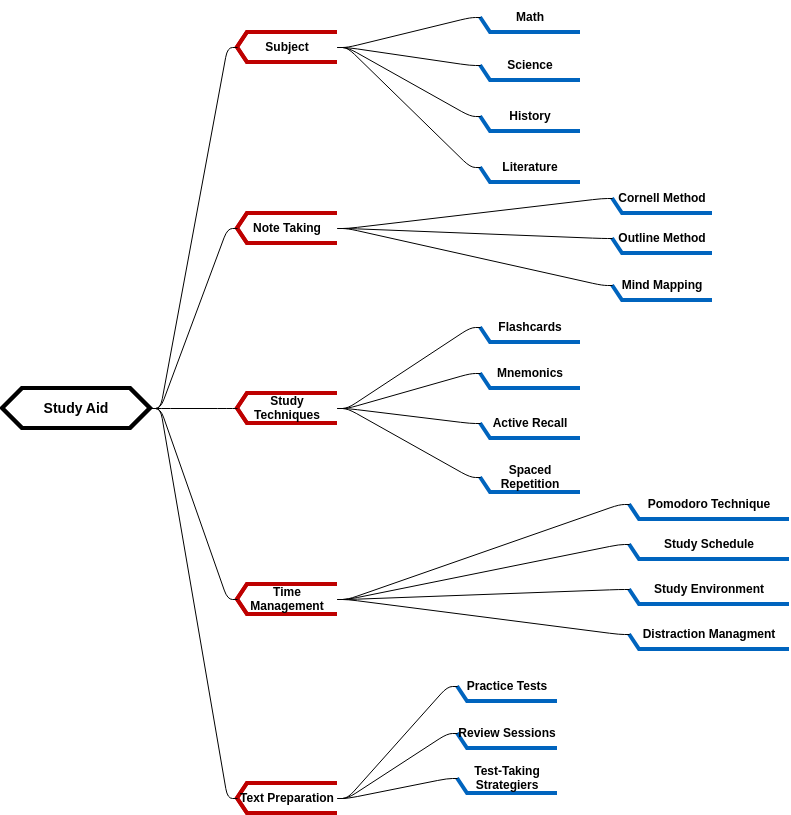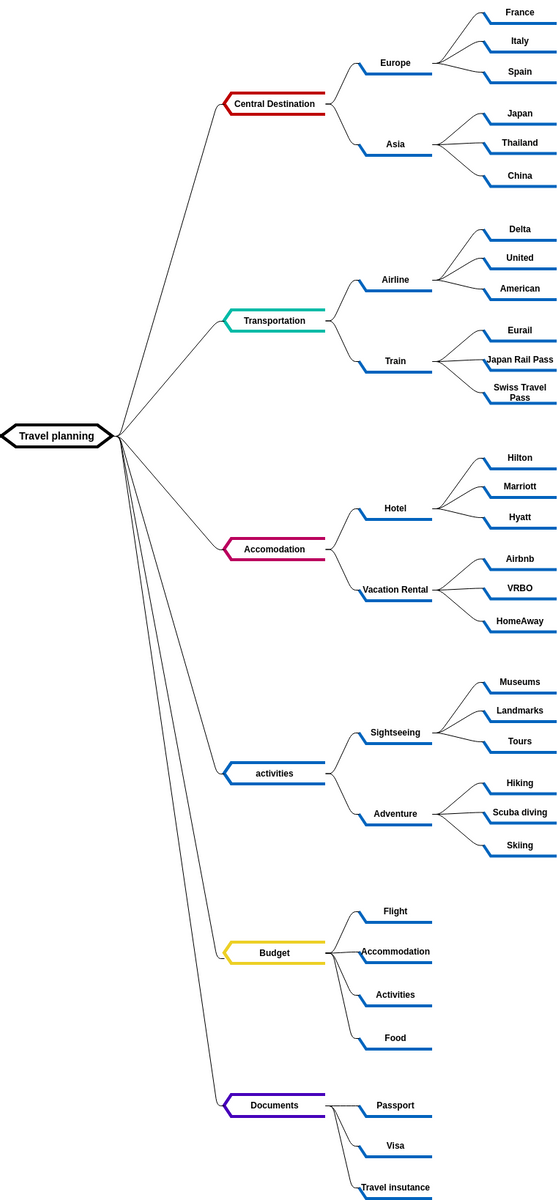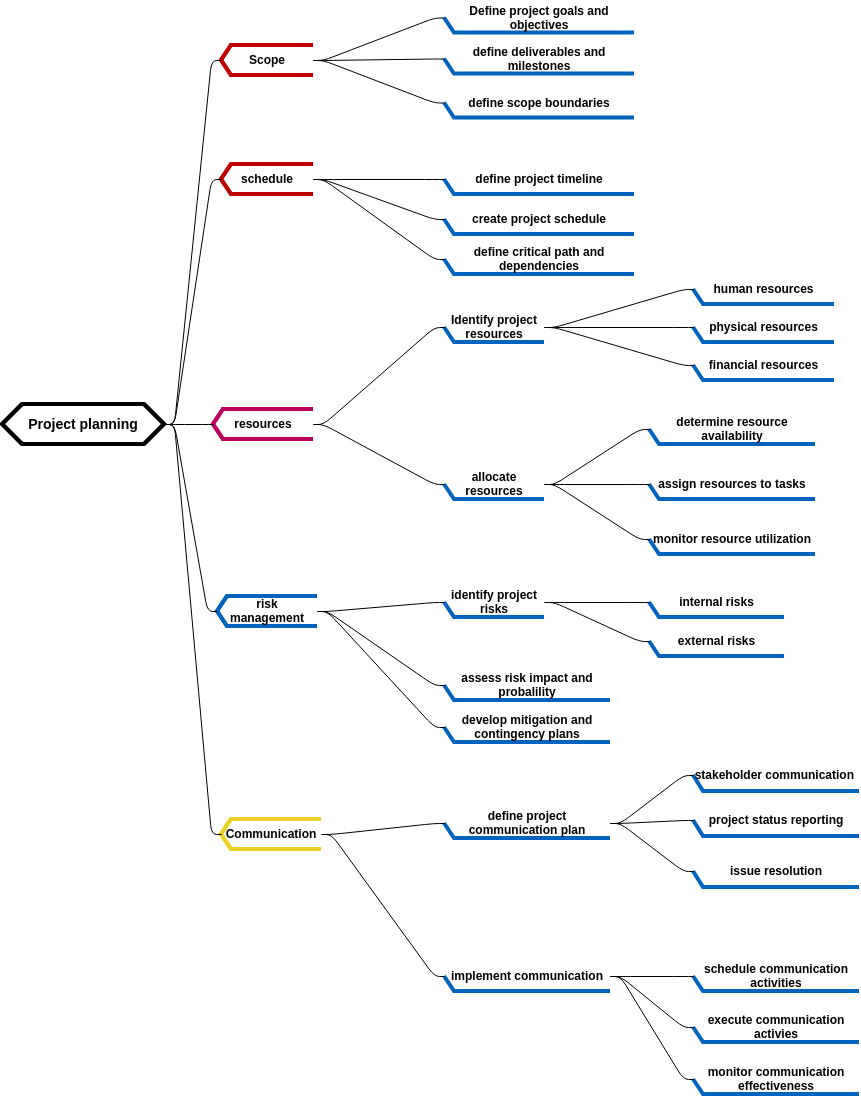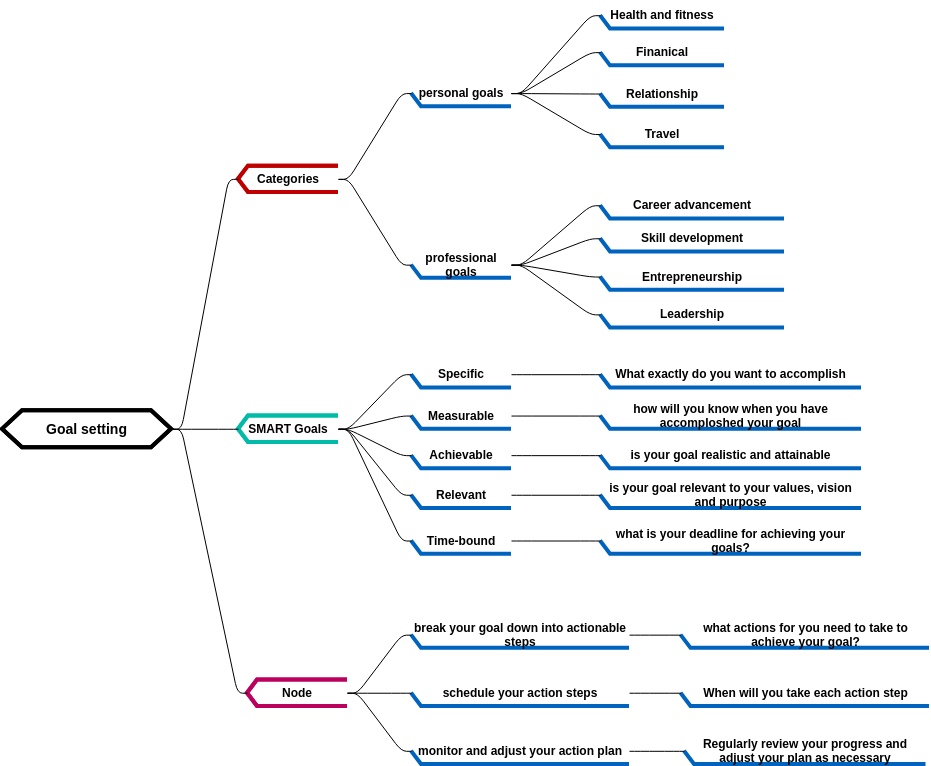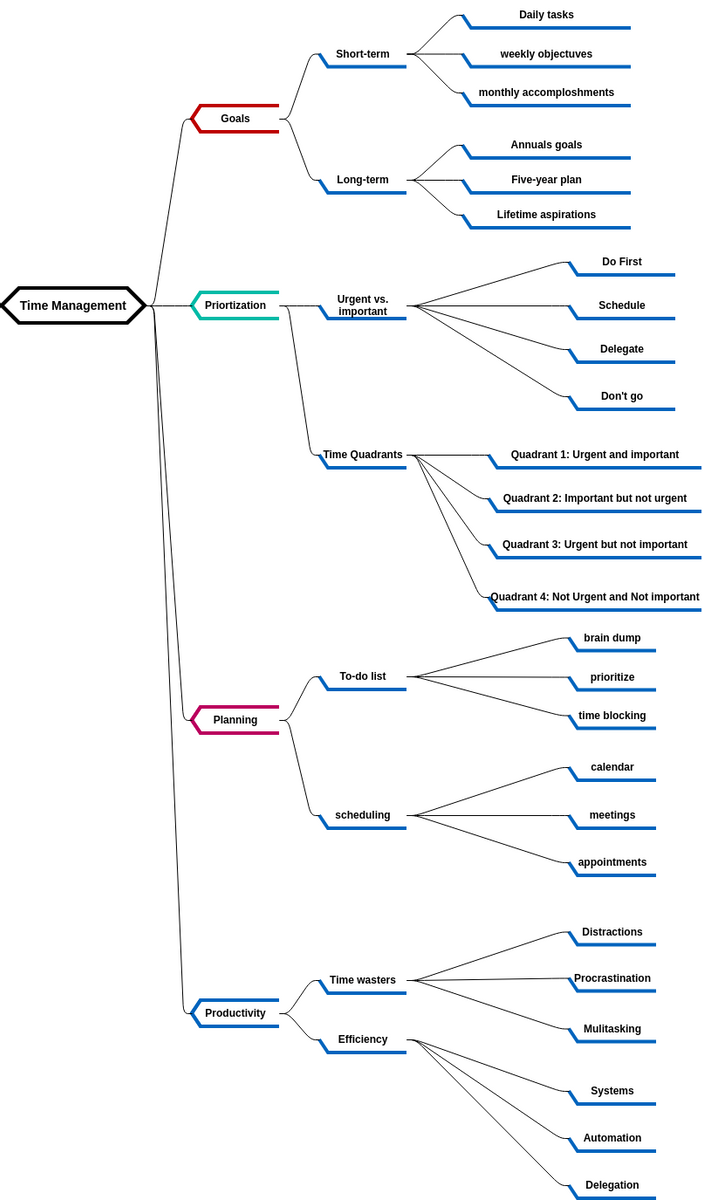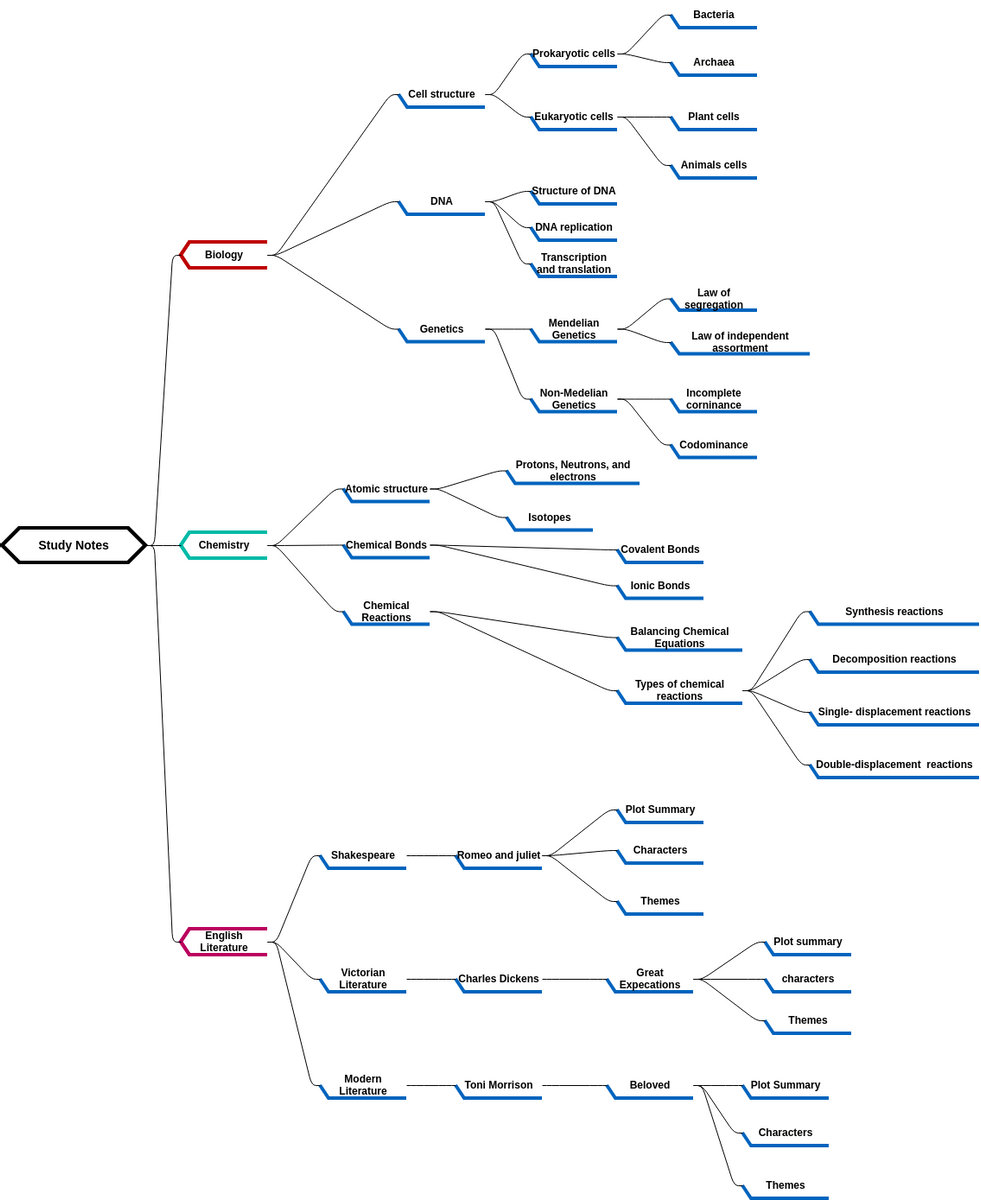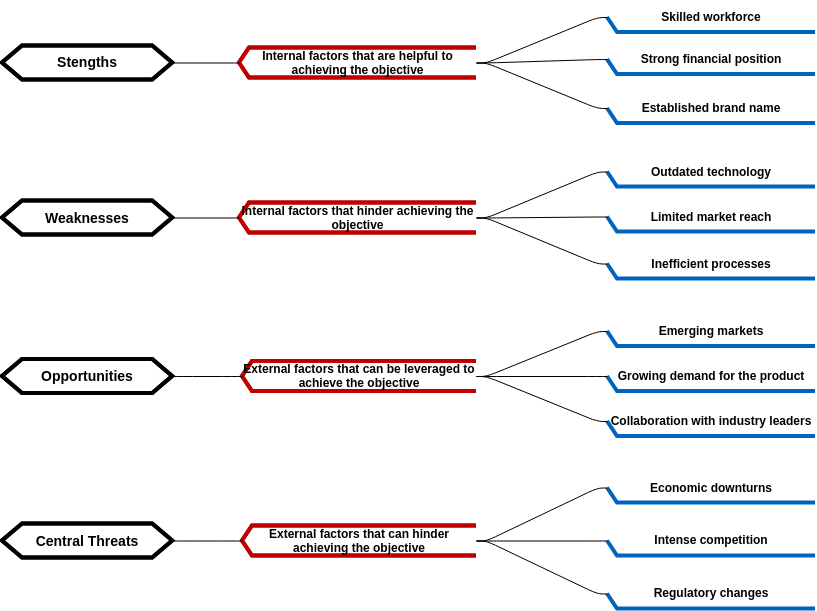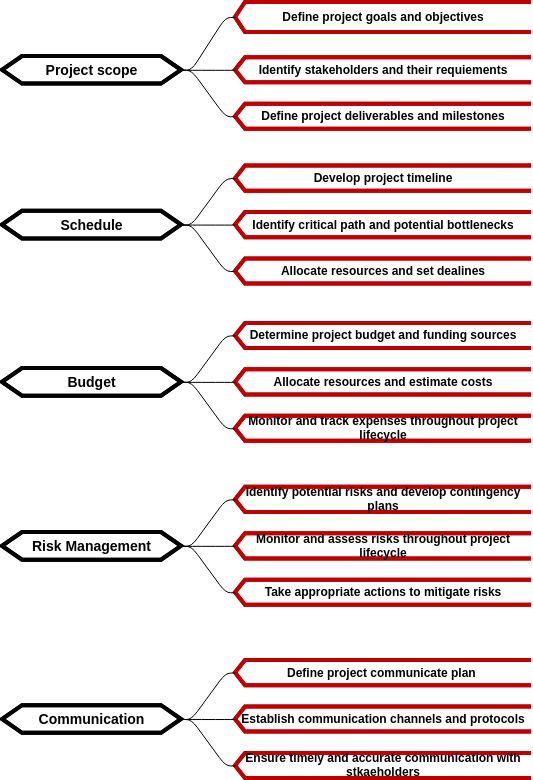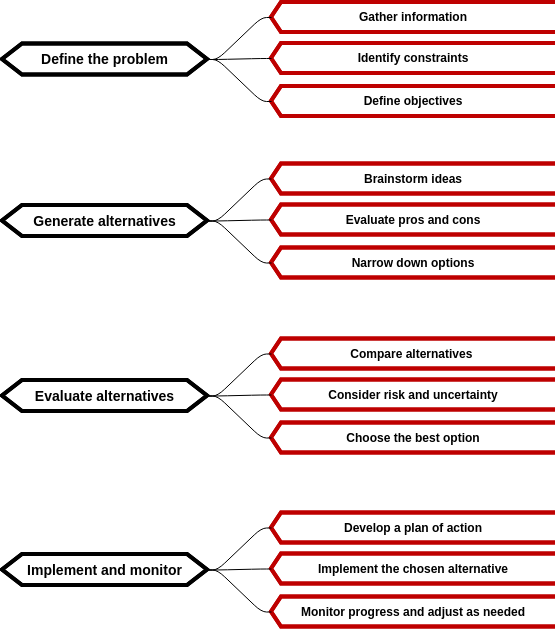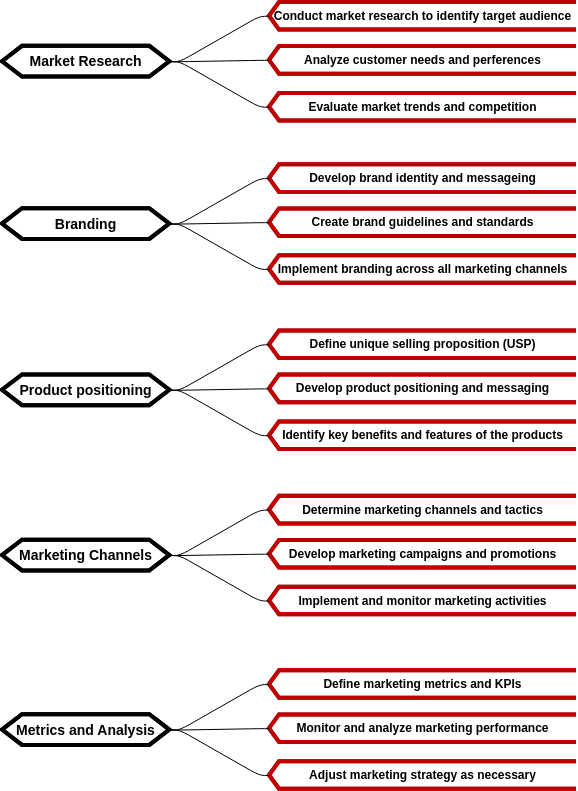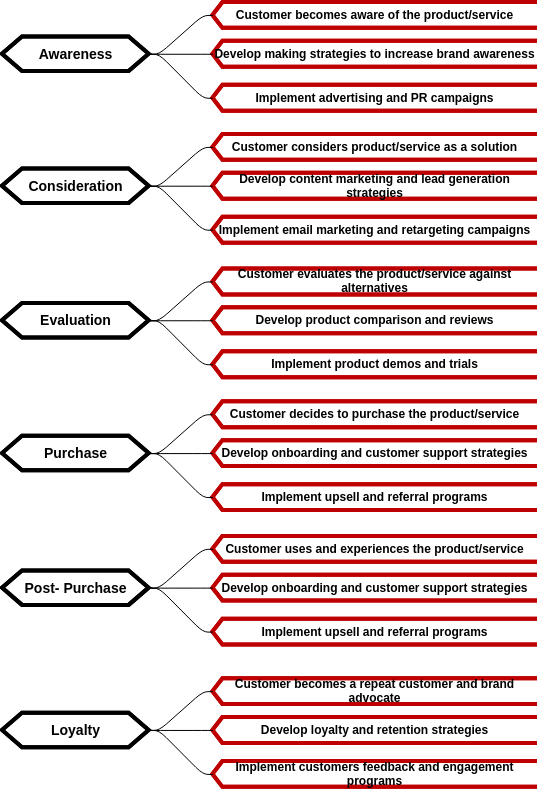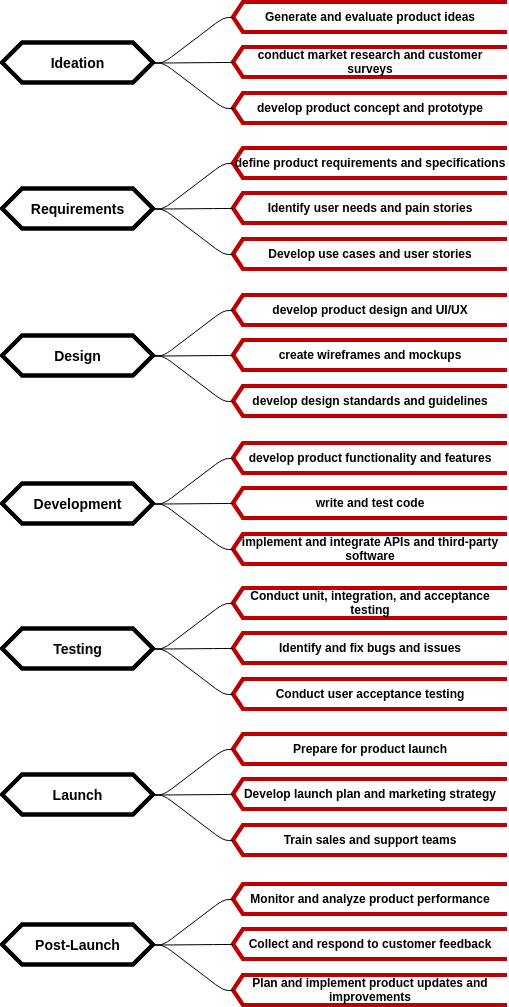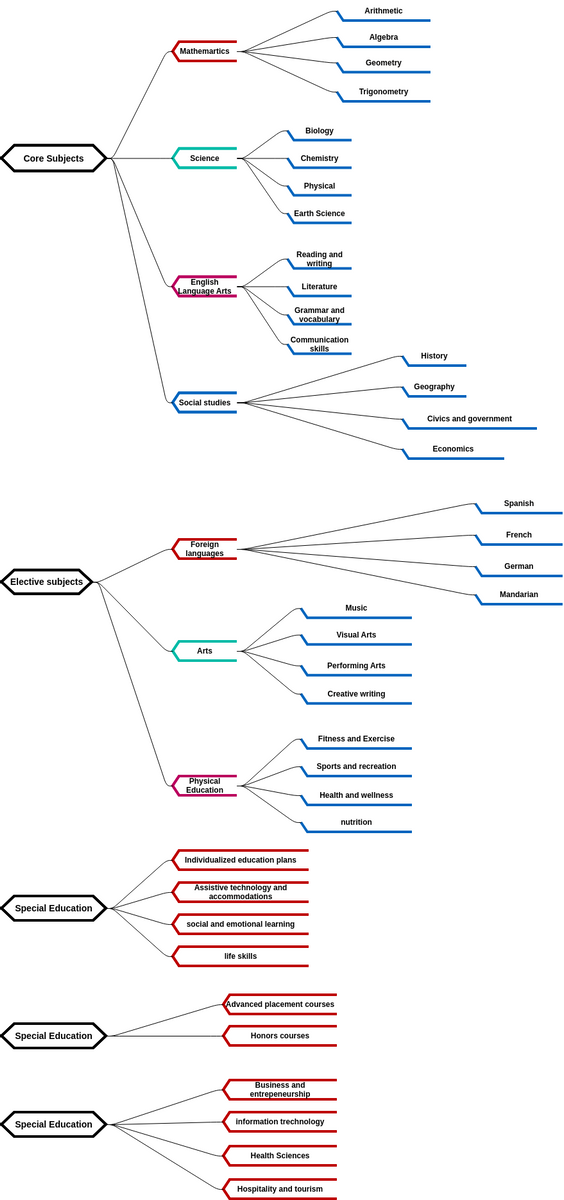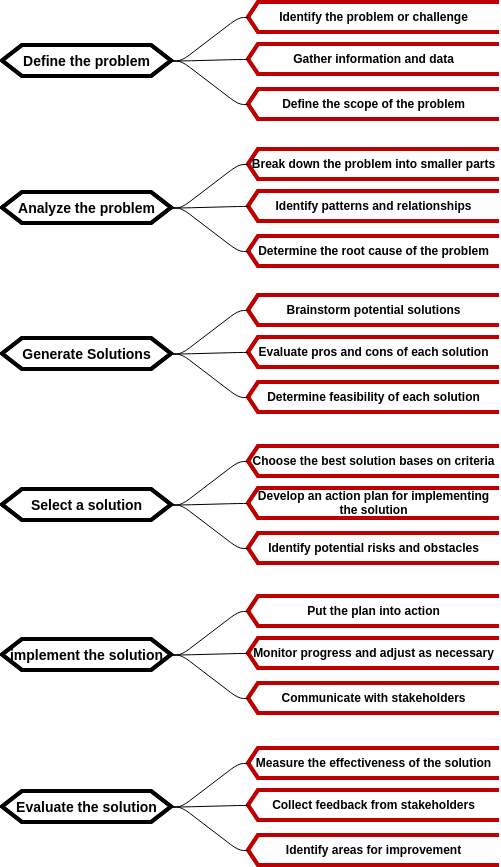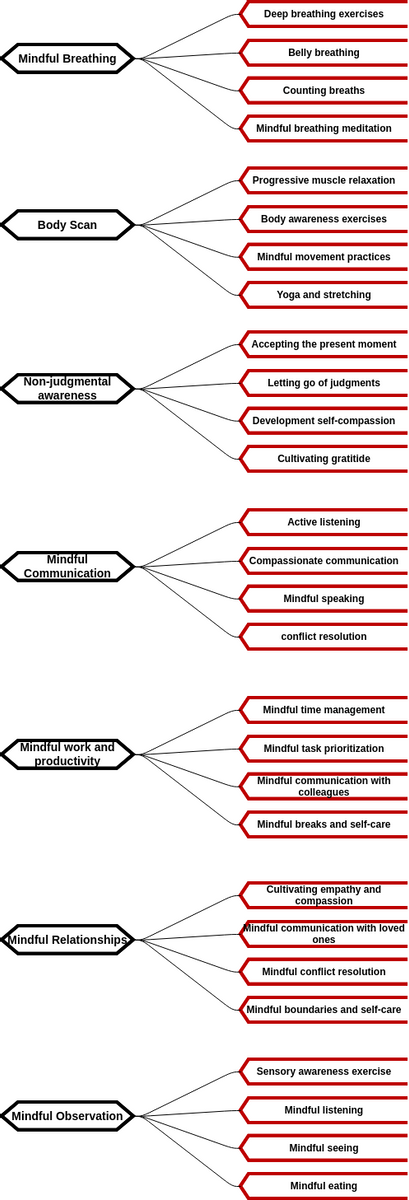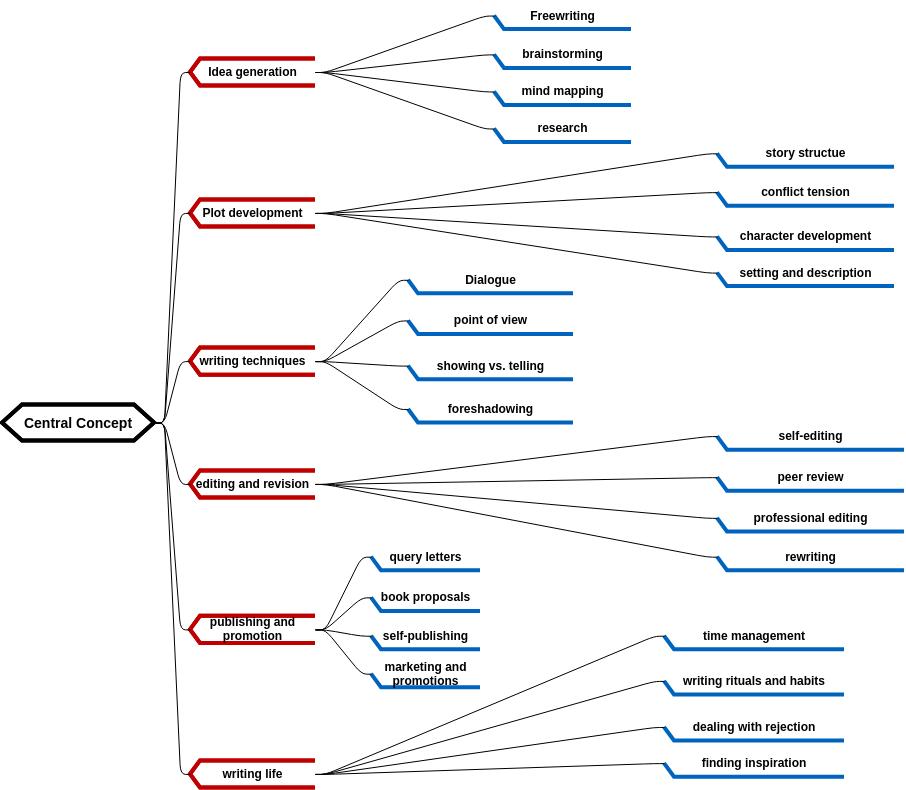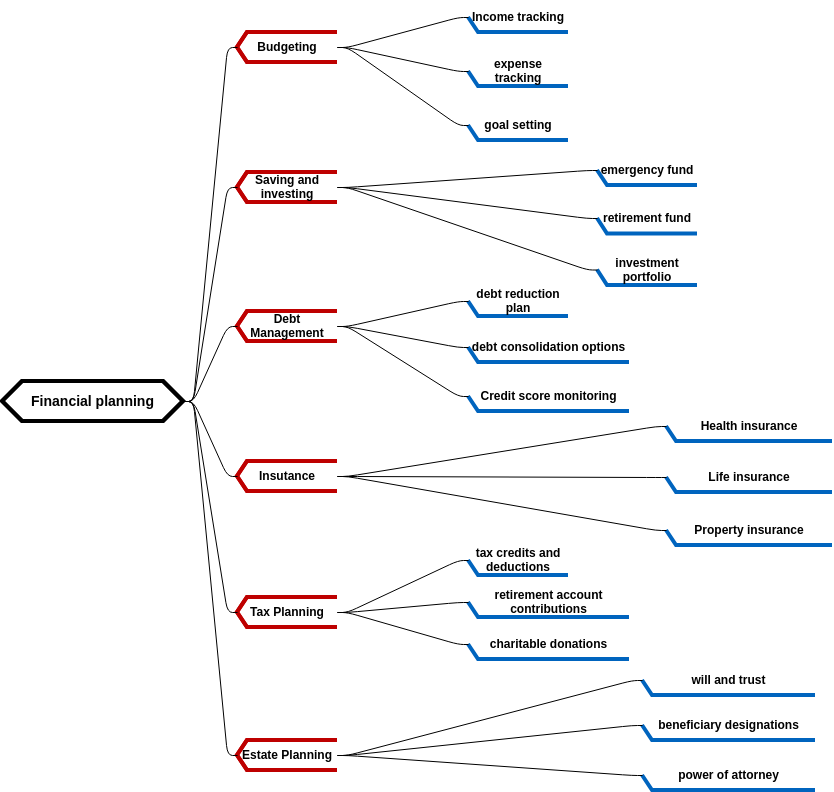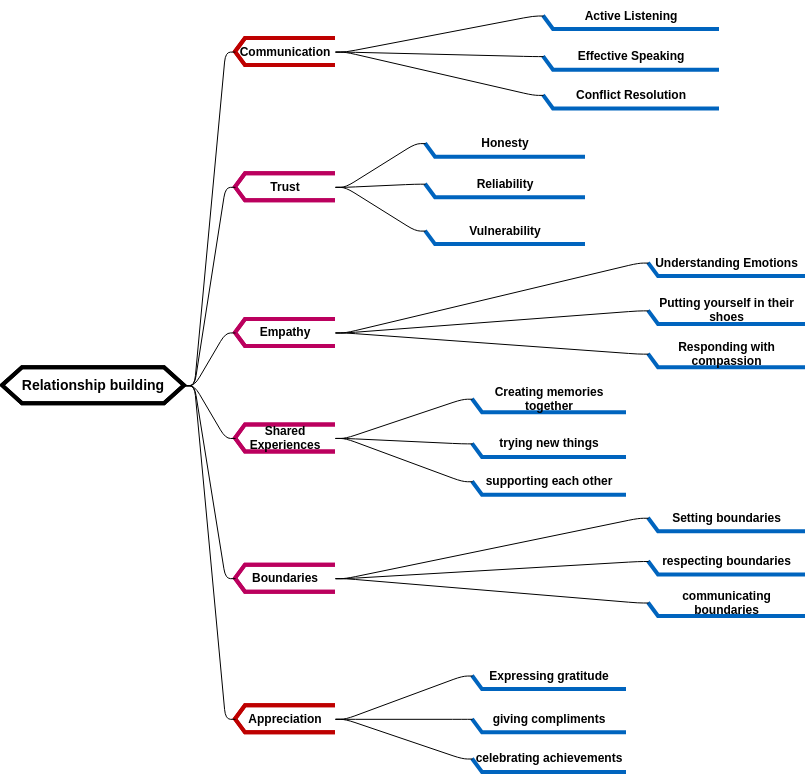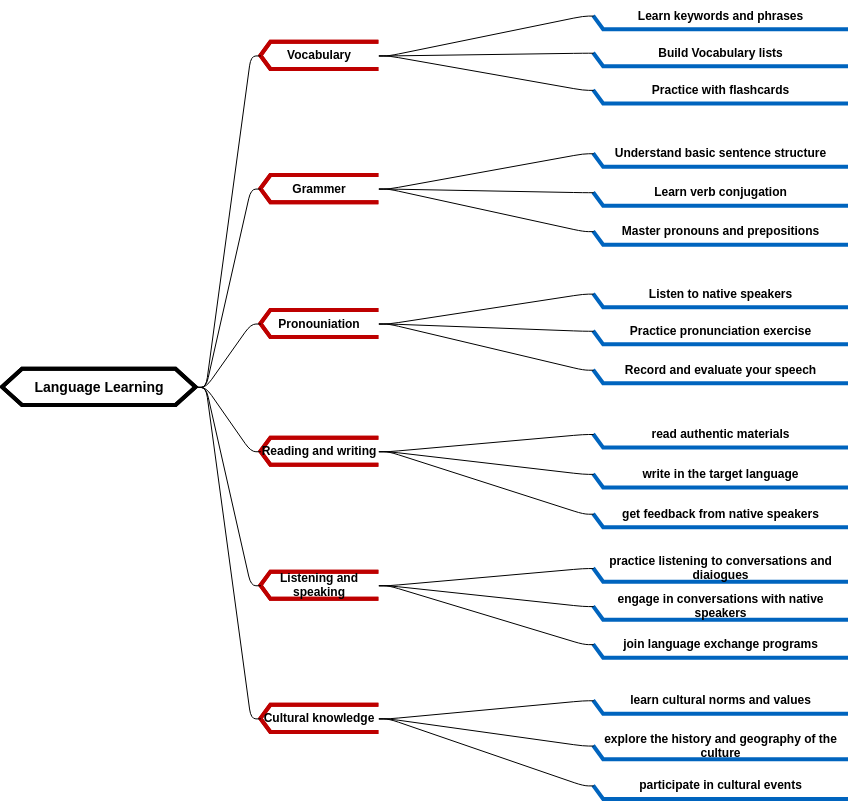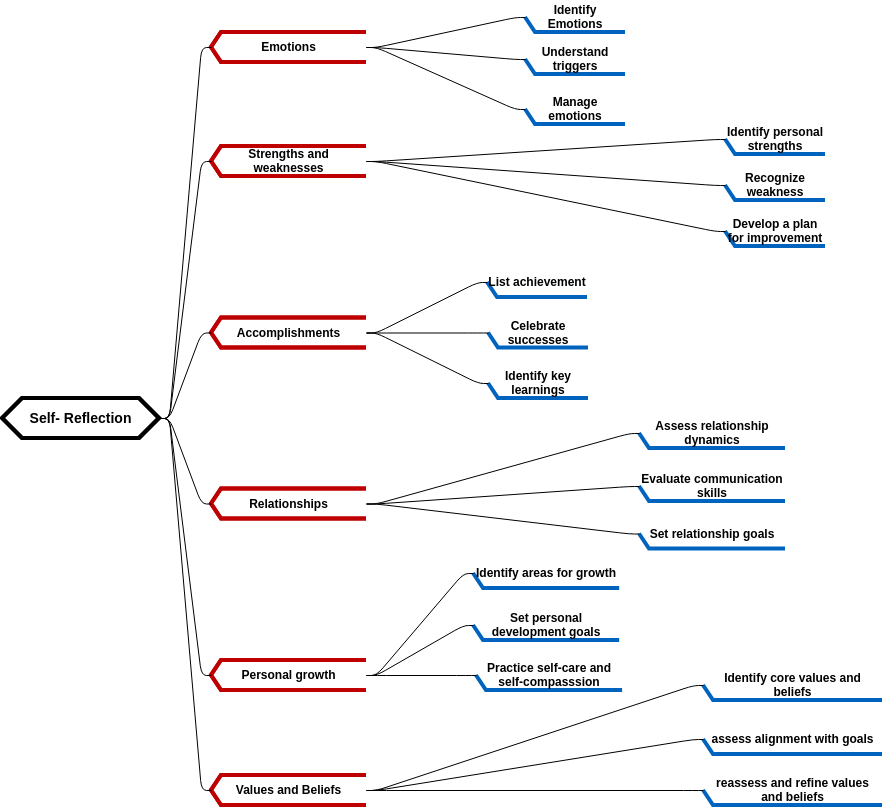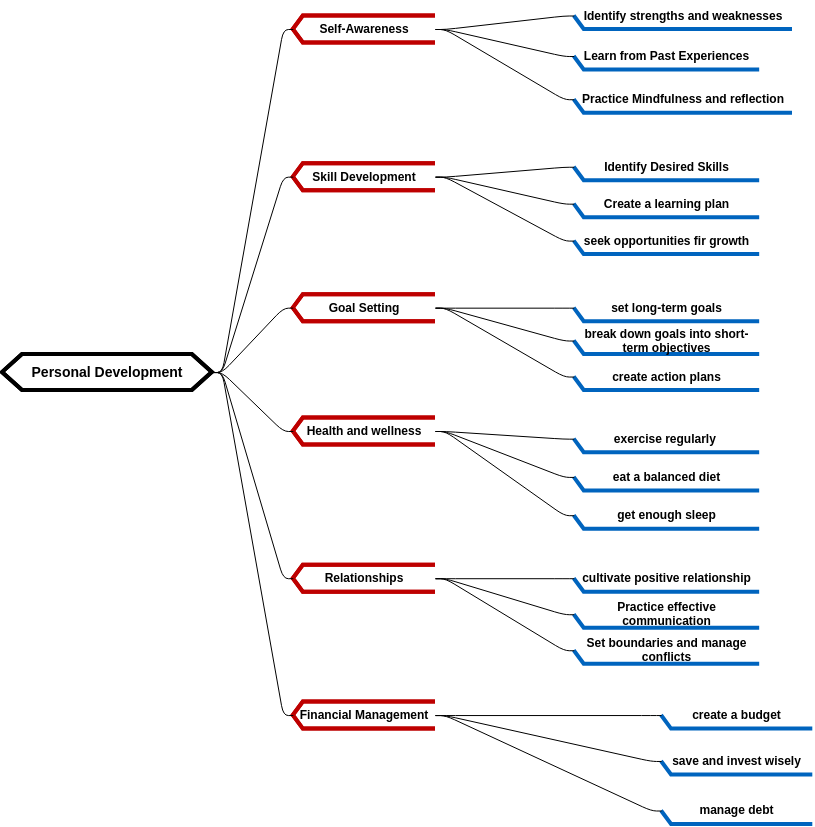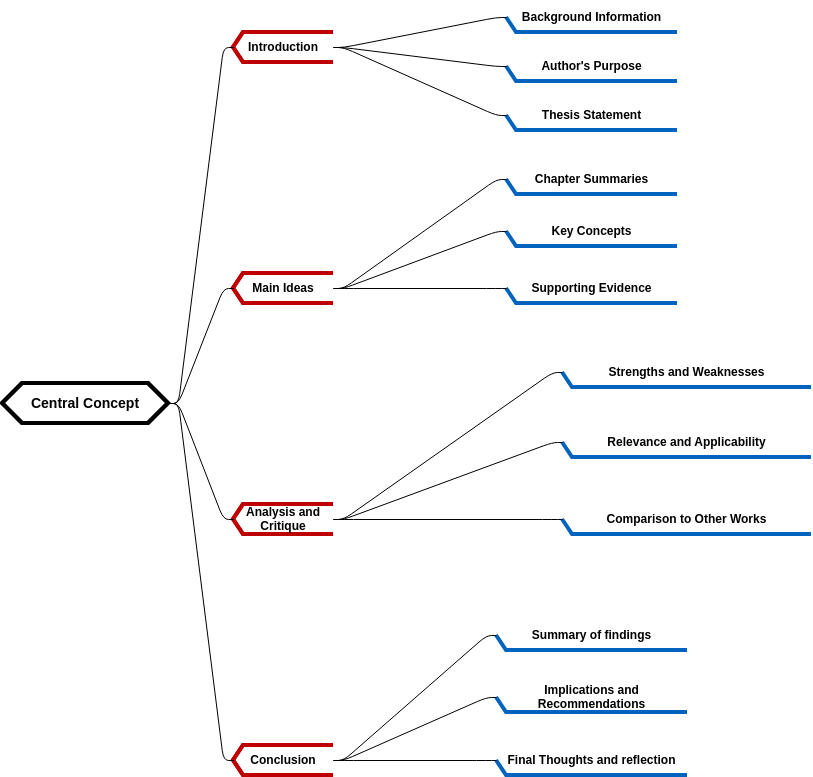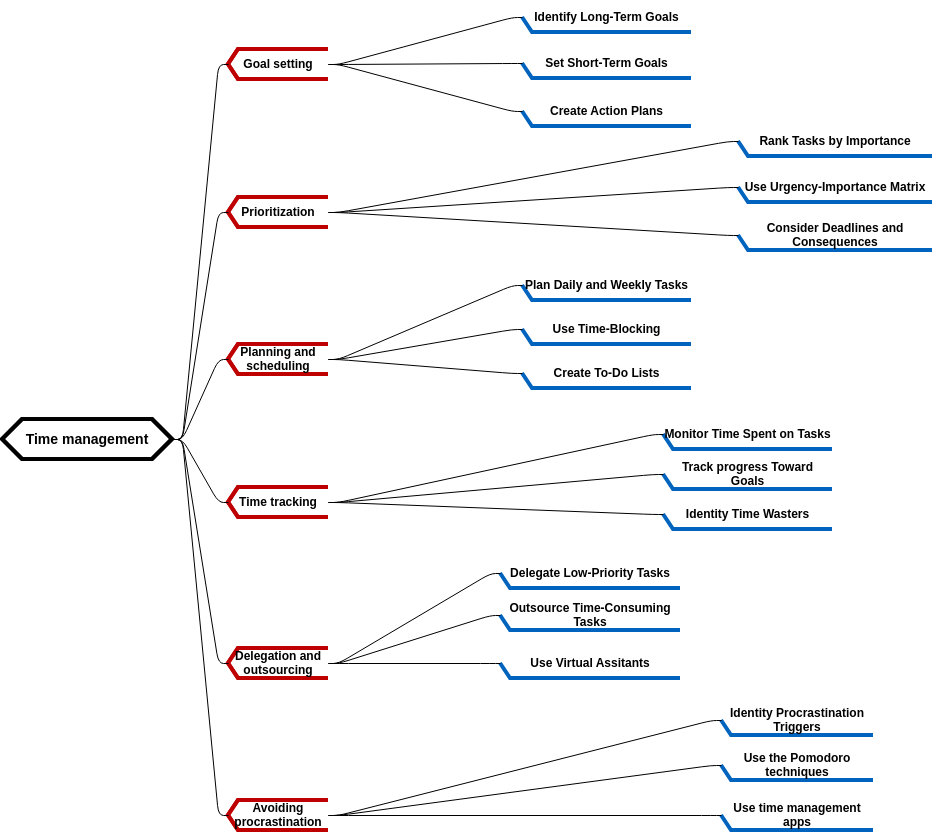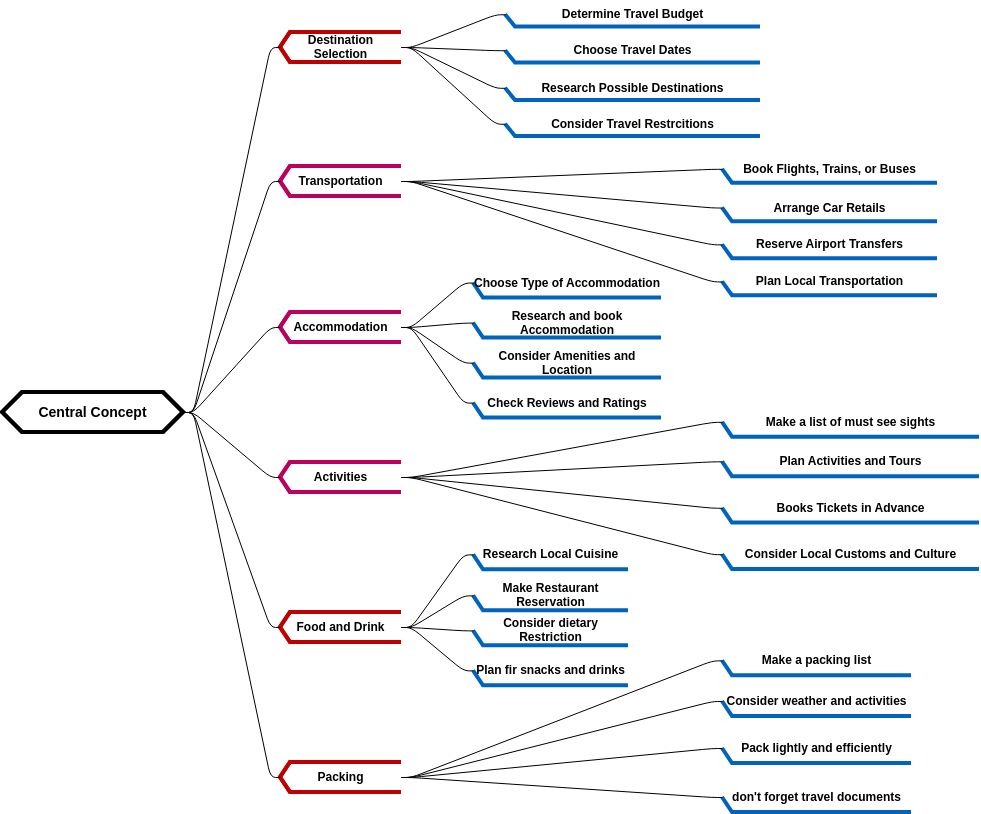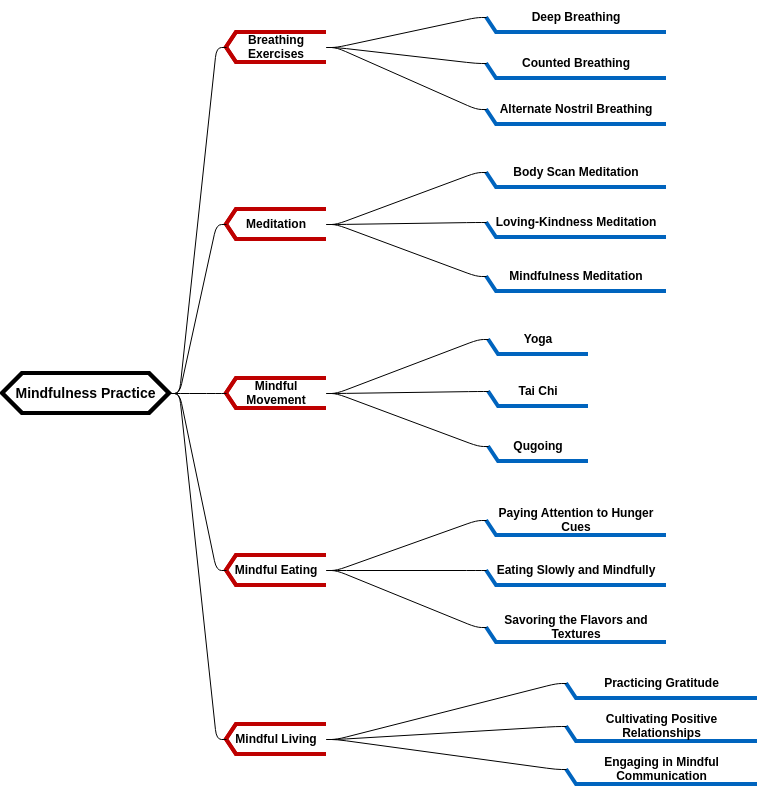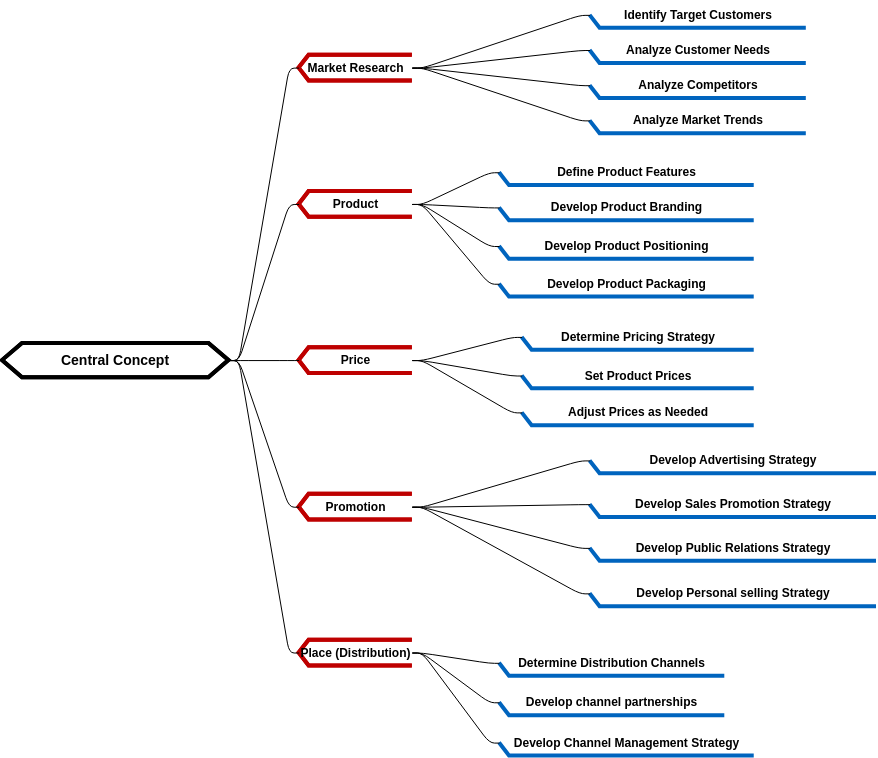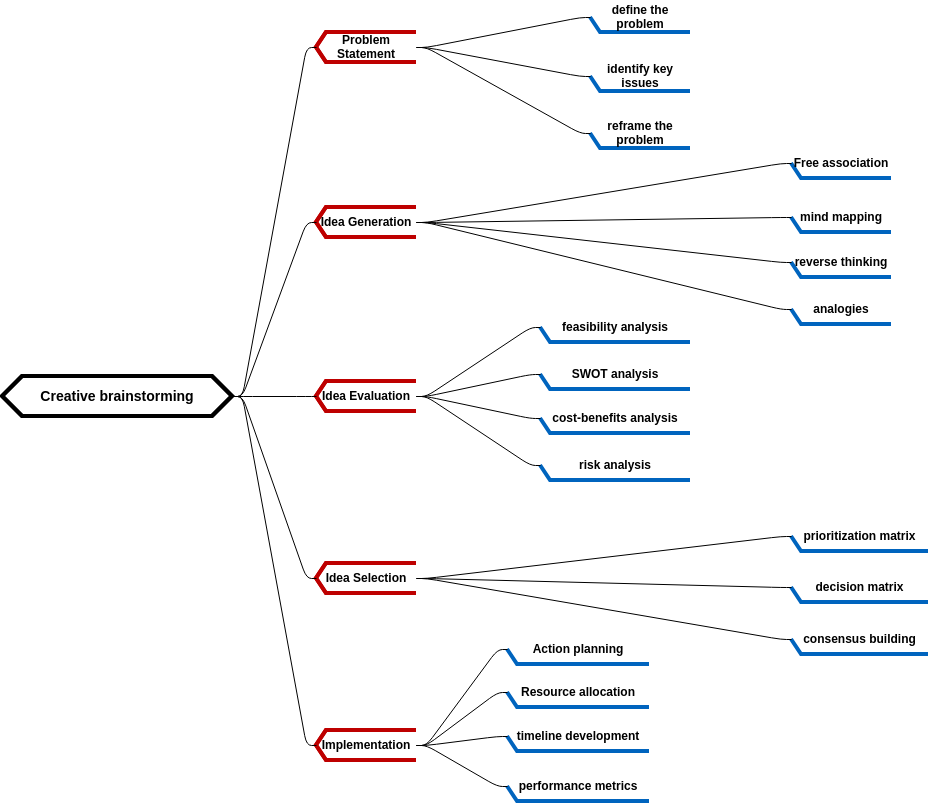Time Management Mind Map
The Time Management Mind Map offers a comprehensive framework to effectively manage time and optimize productivity. It begins with "Goal Setting," where individuals define their short-term and long-term goals. This step helps establish a clear direction and purpose, allowing individuals to align their tasks and activities with their overall objectives.
Moving forward, the mind map addresses the "Planning" stage. Here, the emphasis is on blocking off dedicated time for important tasks and activities. By scheduling specific time slots for essential responsibilities, individuals can ensure that they allocate sufficient time and attention to each task, reducing the likelihood of procrastination and last-minute rushes.
Next is the "Prioritization" stage, which involves using the Eisenhower matrix to prioritize tasks. This matrix categorizes tasks into four quadrants based on their urgency and importance. It enables individuals to identify and focus on high-priority tasks that contribute to their goals and minimize time spent on low-value or non-essential activities. Prioritization helps individuals make effective use of their time and avoid getting overwhelmed by less important tasks.
The mind map then highlights the "Time Tracking" stage, which involves identifying time-wasting activities and distractions. By tracking and analyzing how time is spent, individuals can gain insights into their habits and identify areas where time is being wasted. This awareness allows for targeted efforts to eliminate or minimize distractions, optimize workflows, and allocate time more efficiently.
Pros of creating this mind map
Creating the Time Management Mind Map offers several advantages. Firstly, it provides a visual and organized representation of key time management strategies and techniques. The mind map condenses complex information into a clear and concise format, making it easier to understand and remember. This visual representation enhances comprehension and serves as a quick reference guide for individuals seeking to improve their time management skills.
Secondly, the mind map promotes a holistic and systematic approach to time management. By outlining various aspects such as goal setting, planning, prioritization, and time tracking, the mind map ensures that individuals consider all essential elements for effective time management. It encourages individuals to view time management as a comprehensive process rather than focusing solely on one aspect. This holistic approach enables individuals to identify areas of improvement, implement strategies that work synergistically, and create a balanced and efficient time management system.
Furthermore, the mind map fosters self-awareness and reflection. As individuals create and review the mind map, they become more conscious of their current time management practices and their impact on productivity. This increased awareness allows individuals to identify their strengths and weaknesses in time management, enabling them to make targeted improvements. The mind map serves as a visual reminder to track time usage, identify time-wasting activities, and actively work towards optimizing their time allocation.
Do you need templates for flowchart design? Right away, go to Visual Paradigm Online to look at some of your favorite customizable templates.
